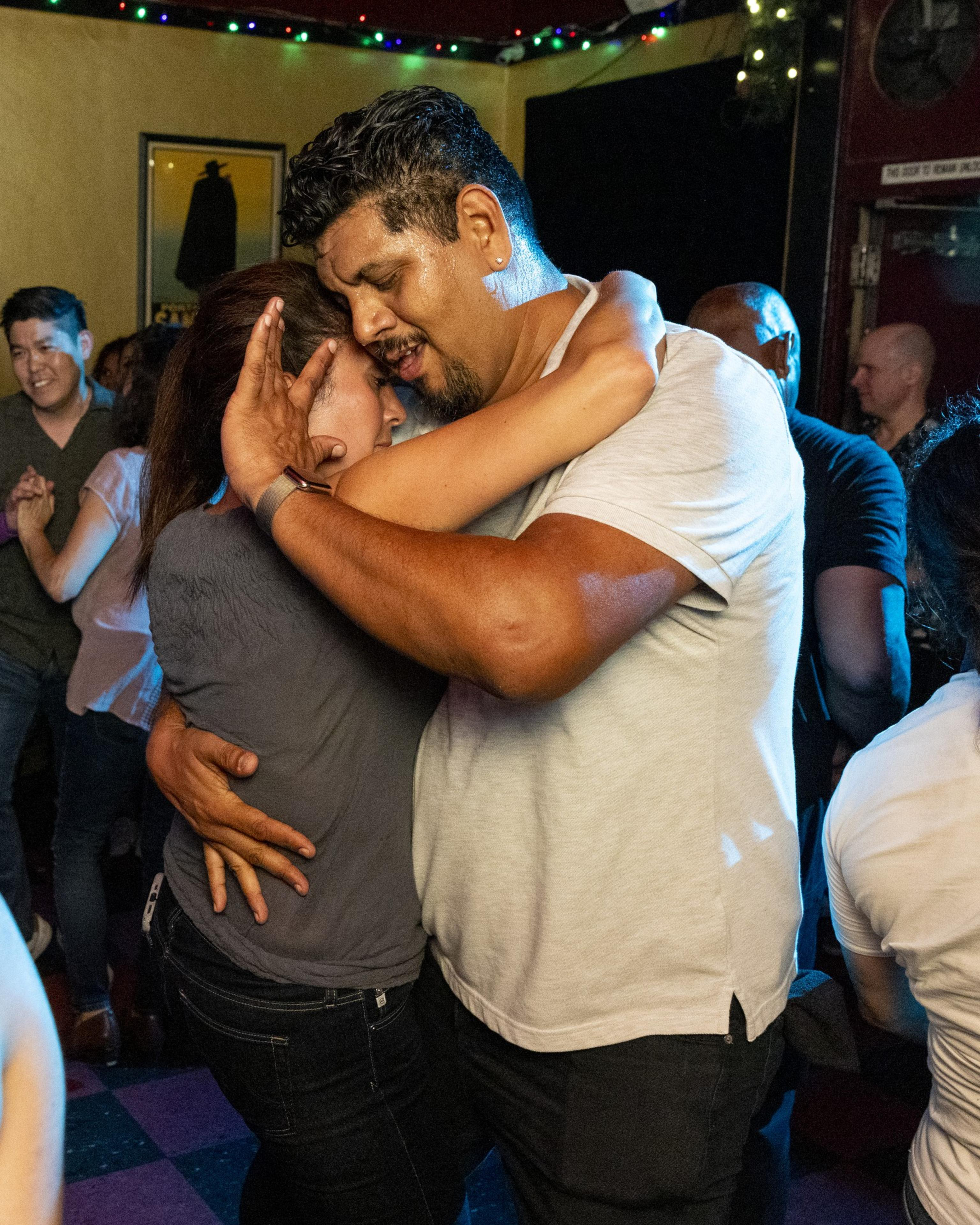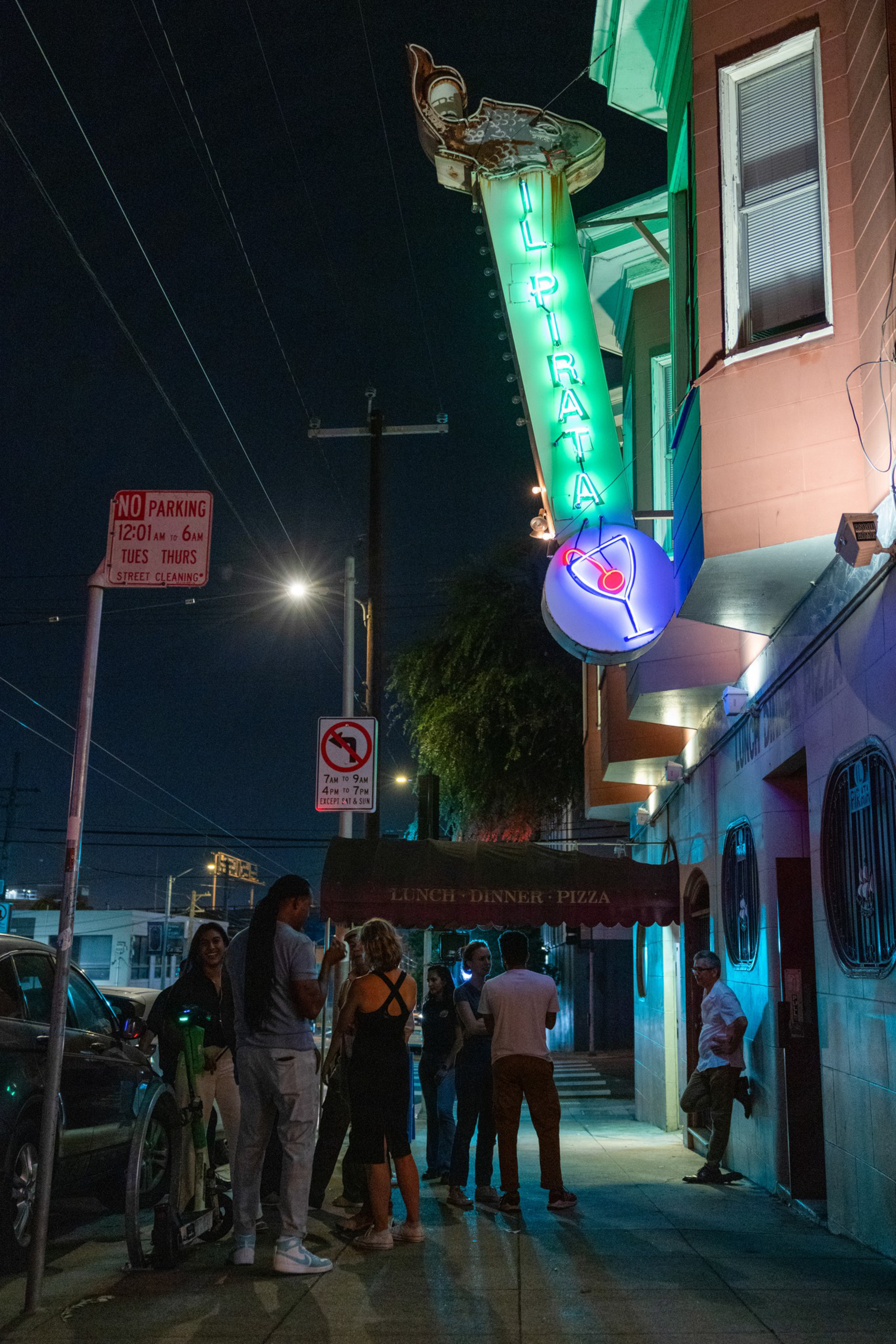For the past 22 years, on the last Friday of every month, Il Pirata, located at the base of Potrero Hill, turns from your average neighborhood sports bar into a sweat box. Every slice of humanity you can think of squeezes onto its tiny, checkered floor to dance salsa. Rags hang out of back pockets for wiping brows. By midnight, the door to the street is flung open for air. By 1 a.m., dancing people have spilled onto the sidewalk.
Rather than New York-style salsa (often called “linear,” because you dance in a line versus a circular pattern), the crowd here dances the earthier salsa Cubana, also known as “casino.” The DJs spin timba (opens in new tab), a music style that originated in Cuba in the ’80s, combining everything from son and rumba to funk and Afro-Cuban rhythms.
The crowd leans Latin, with a heavy Cuban contingency, but it’s more apt to be described as pan-San Franciscan. Converse and jeans are seen more than heels and dresses. Who leads and who follows is less about gender and more about joy. A rueda (opens in new tab) circle dance might spontaneously break out. There is grinding, of course, but it is generally less a pick-up scene than a bunch of well-behaved salsa fanatics.



Today, there are numerous spots to dance to timba — and a ton of classes (opens in new tab) to teach you how. But the monthly party at Il Pirata, known as La Tropi-Cal (opens in new tab), was the first and remains the place to be for the Bay Area’s best. La Tropi-Cal was started by dance instructor Rick Washington (aka DJ Dark Rum (opens in new tab)), Walter Vela (DJ WaltDigz (opens in new tab)), and Alvaro Batista (opens in new tab), a photographer and salsa instructor. Now in their 50s, the three met in the ’80s at Lincoln High School. “I think Al and I were in sex ed together,” muses Washington. At the time, they were hip-hop-obsessed aspiring music producers.
But once they were all introduced independently to Cuban music, salsa also became their love. In the early ’90s, Washington was working with Paris, the first American hip-hop artist to perform in Cuba. “I’m in Havana absorbing the music and culture and people dancing, and I’m seeing people who look like me as an African American. I said to my friend, ‘Do you hear this music, how good and strong it is?’” By the late 90’s, all three of the friends were taking Cuban-style salsa classes at the Mission Cultural Center.



Eventually the idea to start a timba night was born. “I took it upon myself to find a venue, which was Il Pirata,” says Washington. “The manager was Billy — he is still there.”
Though the trio, now Añejo Productions (opens in new tab), never set out to be the ambassadors of the timba scene, all these years later, thousands have taken a spin at La Tropi-Cal — generations, in fact. It’s like family. Washington recalls that he was recently at a golf camp with his son and saw a woman from salsa night. “She’s working on her golf swing, and I said, ‘I see you, salsera!’ It was like I caught her in her other life, but she’s still a part of this community.”
It is also a drug of sorts. The rush from a perfect dance is craveable, something people seek out again and again. “This music does something to you,” says Washington. “It’s chemical. It makes you want to absorb it, and the only way to do that is to share it with a partner.”



- Date and time
- La Tropi-Cal, last Friday of every month, 10 p.m. to 2 a.m. Cover: $10
